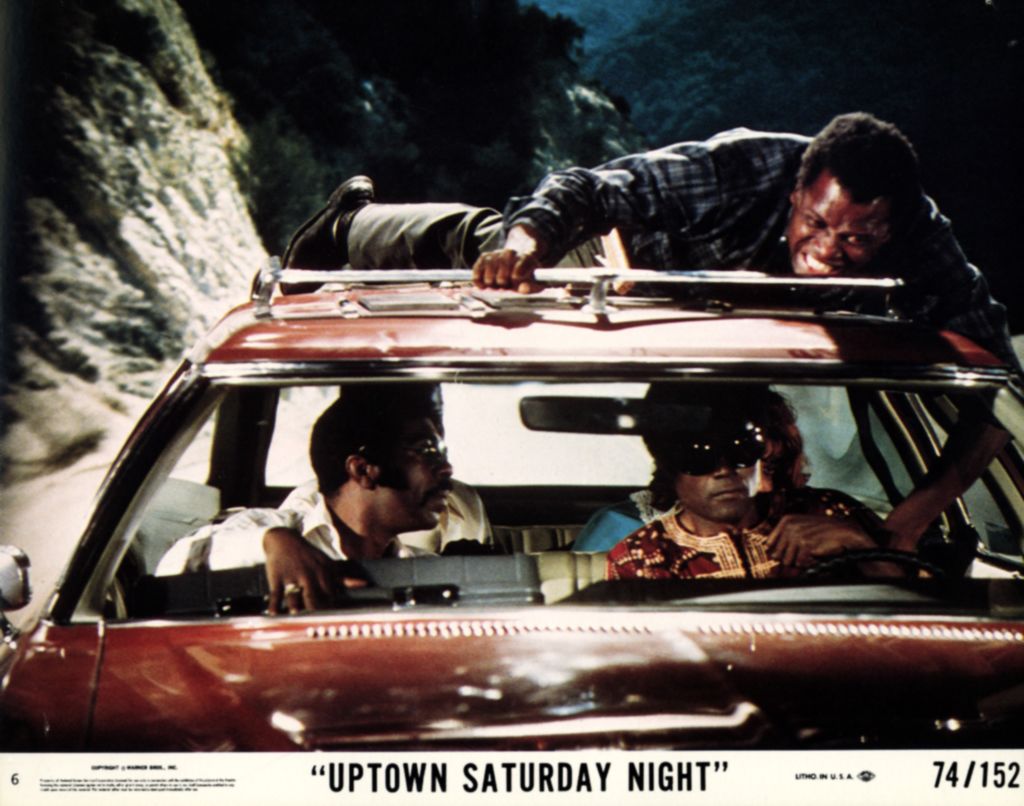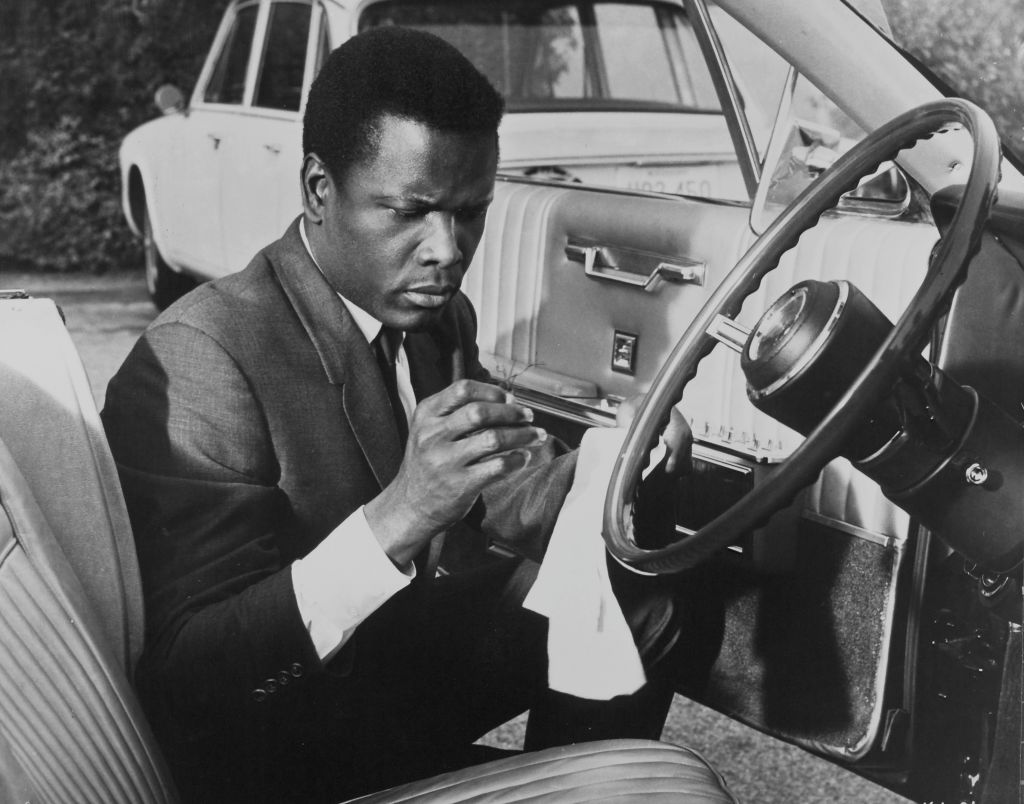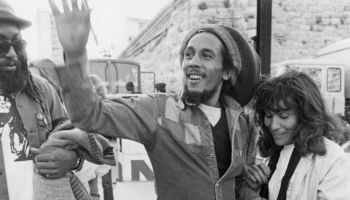
Source: LMPC / Getty
The groundbreaking actor Sir Sidney Poitier, whose movie roles helped redefine the Black presence and experience in motion pictures from the 1950s and onward, has died at the age of 94.

Source: ullstein bild Dtl. / Getty
The Bahamian-American icon leaves behind a legacy of skilled acting performances on the stage and screen, having won the Academy Award for Best Actor in 1963 for his role in Lilies Of The Field.
Here, we cover five of his on-screen appearances that you should watch again in his memory.
5 of Sidney Poitier’s Legendary Acting Roles was originally published on cassiuslife.com
1. A Raisin In The Sun (1961)
Poitier reprised his critically acclaimed role of Walter Lee Younger in the film adaptation of Lorraine Hansberry’s stirring Broadway play about a Black family on the South Side of Chicago striving to make a better way for themselves after their mother receives a hefty insurance payout and puts money down to buy a house in a white suburb of the city. His portrayal of Walter Lee is thoroughly nuanced as he moves through anger and cynicism, vulnerability, and ultimately self-awareness and redemption, serving as a launching point to be solidified as Hollywood’s first Black leading man. Poitier’s performance would be lionized as an accurate representation of the emotional struggles of Black people wanting to have more and fighting against poverty and internalized self-deprecation at that time.
2. In The Heat of The Night (1967)
This movie, directed by Norman Jewison, became instantly popular due to its unflinching portrayals of racial tensions in the deep South during the Civil Rights era seen through the film’s central relationship between Poitier as Philadelphia detective Virgil Tibbs working to solve a murder in Mississippi with Rod Stieger’s snarling and bigoted Chief Gillespie. Poitier’s insistent and bold delivery of the line “They call me MISTER TIBBS!!!” in addition to the slap heard around the world as his character delivered a backhand to an uppity white businessman in response to being struck would add to some of the more iconic moments ever portrayed in motion pictures. In The Heat of The Night was one of three films that year that sealed his legacy as one of the greatest actors ever, and eventually, inspire two sequels and a long-running television series with Howard Rollins and Carroll O’Connor in the 1990s.
3. Guess Who’s Coming To Dinner (1967)
Poitier’s role as Dr. John Prentice in the Stanley Kramer romantic comedy-drama featuring Katherine Hepburn and Spencer Tracy was highly impactful for several reasons. Guess Who’s Coming To Dinner was one of a few movies that dealt with interracial marriage in a positive light, which at the time was not only taboo but explicitly illegal in seventeen states in the nation. His presence in the film as someone who deeply loves his fiance but is also astutely aware of what it means to be a Black man entering into a white family and all of the trials and tribulations it entails provides a steady bedrock of dignity and reason, seen especially in his scenes with Tracy. Guess Who’s Coming To Dinner marks the final film appearance of Spencer Tracy, who would die two weeks after the final scene was shot but cited Poitier’s presence mightily as a reason he took on the role despite poor health as the actor auditioned for both Tracy and Hepburn twice before being cast. The film would be a box-office smash, and be released six months after the Supreme Court would put a stop to anti-miscegenation laws in the case of Loving v. Virginia.
4. Buck and The Preacher (1972)
Paying heed to his own creative vision, Buck and The Preacher is the first movie that Poitier ever directed. The film features Poitier as Buck, a guide in the Kansas Territory of the 1860s who aids wagon trains of freed African Americans to safe settlement in the area, and Harry Belafonte as The Preacher, a shady character who joins forces with Buck to protect a wagon train against a violent group of white gunmen hired by plantation owners to bring the wagon train back to Louisiana. The film also stars Ruby Dee as Ruth, Buck’s wife. Initially received with mixed reviews as it contrasted with other movies during the Blaxploitation era, Buck and The Preacher has gone on to be lauded as a solid film that drew on established Black history in the West and during the era of Reconstruction after the Civil War as well as to portray another part of the Black experience on screen for all audiences.
5. Let’s Do It Again (1975)
Poitier was on a hot streak, teaming up with Bill Cosby to star in and direct a trilogy of action-comedy films that were highlights of the Blaxploitation era and remain as treasured cultural moments. Let’s Do It Again features Poitier and Cosby as two friends looking to raise funds to save their fraternal lodge which is in danger of being destroyed, and so they pull off a crazy scheme involving hypnosis, a scrawny boxer (Jimmie “JJ” Walker” and scamming two warring crime bosses, Kansas City Mack (John Amos) and Hiawatha “Biggie” Smalls (Calvin Lockhart). The movie is chock full of laughs, driven by a lively soundtrack with the city of New Orleans as a backdrop, and shows Poitier as a masterful comedic straight man to Cosby’s over-the-top antics. Let’s Do It Again would go on to be the best of the trio in financial terms and add to Poitier’s reputation as an astute movie director.







